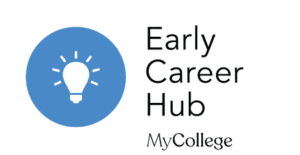You’ll find that the Early Career Hub hosts a huge range of resources to support your professional learning. As a new teacher, this can feel overwhelming; there’s simply not enough time to engage with all of the content, and you’ll want to be sure that the learning you invest your time in, has an impact – on your thinking; your practice; and ultimately, your pupils.As tempting as it can be to jump straight in, it’s helpful to take some time to reflect on your individual professional development needs and then plan your learning accordingly. Let’s take a look at the steps you could take to be strategic about your learning.
On this Early Career Hub, the learning content is categorised into eight key areas, which reflect the Teacher Standards and areas of the Early Career Framework. If you’re not familiar with these standards, you can click on any of the eight areas to get a sense of the teaching practice covered by each.
- High expectations
- How pupils learn and promoting good progress
- Subject and curriculum
- Classroom practice – planning and teaching well-structured lessons
- Adaptive teaching
- Assessment
- Managing behaviour
- Professional behaviours
Depending on where you are in your teaching journey will affect the way in which you think about your practice in each of these areas. We have provided a series of reflective questions to prompt your thinking about which area of practice you may choose to focus on first. We recommend using a paper or electronic notebook to record your reflections on this process so that you can return to them throughout your learning journey. Select the questions that hold most relevance for you.
- What feedback have you received related to these areas?
- What further feedback could you seek from your mentor or colleagues?
- What knowledge do you have in each of these areas?
- What experience have you accumulated in each of these areas already?
- Which of these areas presents an opportunity for further development?
- Which of these areas interest you the most?
- Which of these areas do you think hold most meaning for you?
- Which of these areas do you think might have the most impact on your pupils?
- What challenges have you encountered in the classroom that you think focus on one of these areas might help you to address?
At the end of this reflective process, you should be able to identify one or two areas that you will choose to focus on first.
1. The purpose for engaging in a careful planning process is to ensure that your professional learning is purposeful, underpinned by robust evidence and expertise, has a focus on pupils and is sustained over time (DfE 2016).
Selecting a single focus at a time will enable you to navigate the learning content in a way that holds meaning for you and your specific context.
You might find it useful to set an initial goal around your first chosen area of focus:
- Learn about how pupils learn with a focus on improving pupil outcomes.
- Learn about managing behaviour with a focus on starting the teaching year well.
To begin with, and depending on your level of classroom practice, this goal may seem quite broad. As you begin to engage with research evidence and case studies in the area, you will gain enough new knowledge to revisit your goal and make it more specific.
- Learn about how pupils learn, specifically retrieval practice, with a focus on improving pupils’ long term memory and summative assessment outcomes in Year 11 French.
- Learn about managing behaviour, specifically start of lesson routines, with a focus on creating a safe and structured learning environment for pupils.
It’s important that your goal, whether broad or narrow, is closely connected to the impact you hope to have on your pupils as ‘significant changes in teachers’ attitudes and beliefs take place only after positive change in student learning is evident’ (Guskey 1986).
2. Now you have a clear focus for your professional learning, it is time to explore the content options available to you. Navigate to your chosen area of the eight listed above. Open any of the items that look as though they could be helpful for your learning. Click the ‘Bookmark’ option to save the relevant items to your profile for later viewing.
It’s likely that a number of the areas might seem useful so to begin with, you may just like to bookmark 4 or 5 items and then return once you’ve engaged with and learned from those. We’d recommend starting with any titled ‘an introduction to’ or those that are a research digest or summary as these will get you started with new knowledge before you begin exploring videos, case studies and other articles. This approach to your learning will also help you navigate the transition from research to practice.
Collaboration with colleagues can support our professional development as ‘we feel safe to take risks when we work collaboratively with people we trust enough to expose our professional vulnerabilities’ (Dudley 2015). Your mentor and other teaching colleagues can help you translate your new learning from the Early Career Hub into action back in your classroom. We’ve provided some possible suggestions of how to structure this collaborative learning here.
3. Now that you have a goal and you’ve selected some initial content to support your learning, it’s time to plan how you’ll be able to commit to your learning. Here are some decisions it might be useful to make to guide your learning.
When and where
- When will you complete your initial learning in order to refine your goal? Select just 4 or 5 initial items to make this achievable.
- How will you know when your refined goal has been met and you can change your area of focus? Will your goal be ‘complete’ once you have a plan for implementation or once you’ve begun implementing?
- Where and when will you engage with this learning? Once a week on a Friday afternoon in school, twice a week on a morning just after breakfast at home.
- How many minutes would you like to devote to this learning each week and how will this be sustained during term-time? Try to be realistic rather than ambitious here. You can always increase the time you spend if you find you have the time.
- Where will you document your goal, progress towards it, and new knowledge? A notebook or a virtual notes collection like Evernote, Microsoft OneNote, or a Google Document.
- How will you organise your new learning so it’s easy to reference later? Cornell Notes method, a coded or coloured categorisation system.
Evaluate and collaborate
‘Teachers retain and repeat practices that work, whether in motivating students, managing student learning, or helping students attain desired learning outcomes. They generally abandon practices that don’t work or fail to yield any tangible evidence of improvement’ (Guskey 2020). It’s worth remembering that it’s not always easy to track the impact one of your actions has had on your pupils as there are so many factors affecting their progress but going through this careful planning process may help.
- What impact might your learning have on pupils? How would you like their behaviours or attitudes to change?
- How will you know that your learning has had an impact? Feedback from colleagues, test scores, observations and noticing.
‘For new practices to be sustained and changes to endure, teachers need regular feedback about the effects of these efforts. Success is reinforcing. People tend to repeat the actions that cause it and decrease or halt actions that don’t. This is especially true of teachers, whose primary psychological rewards come from feeling certain about their capacity to affect student growth and development’ (Huberman, 1992).
- Which colleague will you share your goal with? A trusted colleague or mentor.
- When and how often will you request specific feedback from them about the change in your practice and your pupils? Once a fortnight for 6 weeks? Twice half-termly over a term?
References
Coe R (2017) How can teachers learn to be better? Available at: https://www.cem.org/blog/how-can-teachers-learn-to-be-better-teachers/ (accessed 13 May 2020)
Cordingley P et al. (2015) Developing great teaching: lessons from the international reviews into effective professional development. Available at: http://dro.dur.ac.uk/15834/ (accessed 13 May 2020)
Department for EducationThe ministerial department responsible for children’s services and education in England (2016) Standard for Teachers’ Professional Development. Available at: https://assets.publishing.service.gov.uk/government/uploads/system/uploads/attachment_data/file/537030/160712_-_PD_standard.pdf (accessed 13 May 2020)
Dudley P (2015) in IRIS Connect (2015) Shaping the Future of CPD: Time to focus on the important, not the urgent. Available at: http://irisconnect.co.uk/wp-content/uploads/2015/03/Shaping-CPD-report-online-version-2015.pdf (accessed 13 May 2020)
Guskey T (1986) Staff development and the process of teacher change. Educational Researcher. 15(5). Available at: https://www.researchgate.net/publication/243770742_Staff_Development_and_the_Process_of_Teacher_Change (accessed 13 May 2020)
Guskey T (2020) Flip the script on change. Available at: https://learningforward.org/journal/beyond-the-basics/flip-the-script-on-change/ (accessed 13 May 2020)
Huberman M (1992) Teacher development and instructional mastery in Hargreaves A & Fullan M (Eds) Understanding teacher development. pp. 122-142). Teachers College Press











